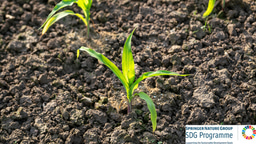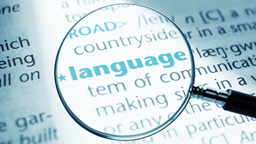Call for papers: Psychological approaches to health misinformation Collection
Published in Behavioural Sciences & Psychology

Collection Overview
Scientific Reports has launched a Guest-Edited Collection on Psychological approaches to health misinformation.
Health misinformation refers to demonstrably false or misleading information that is often shared unintentionally across social media and online platforms. Health misinformation has proliferated since the COVID-19 pandemic, posing a threat to public health and society. Despite the extensive investigation on this topic, it remains unclear how and why health misinformation spreads, and what strategies can be used to combat it.
This will be a Collection of original research papers and will be open for submissions from all authors – on the condition that the manuscripts fall within the scope of the Collection and of Scientific Reports more generally. We are welcoming submissions until 17th April 2026.
Why is this Collection important?
"We are living in an era where a single misleading post can spread faster than a virus — shaping beliefs, influencing health behaviors, and ultimately affecting lives. Understanding why people believe and share health misinformation, and how we can effectively counter it, has become one of the most urgent challenges of our time.
This special collection brings together cutting-edge psychological research to illuminate the cognitive, emotional, social, and cultural forces behind health misinformation — and to develop evidence-based solutions."
- Dr. Vladimíra Čavojová, Guest Editor
"Misinformation is one of the most important challenges of our time. False information about health impacts everyone and can have life-threatening consequences for individuals and destabilize public heath at population level. I'm excited about this collection because it will help illustrate the depth and breadth of research on why people are susceptibility to health misinformation, how it spreads online and offline, and what interventions may be effective in countering it. It also demonstrates Nature's unwavering commitment to fighting misinformation at a time where science and academia are under attack. Scholars need to continue studying this important topic and I'm happy to be able to help provide a high-profile outlet for this work."
- Dr. Sander van der Linden, Guest Editor
Why submit to a collection?
Collections like this one help promote high-quality science. They are led by Guest Editors, who are experts in their fields, and In-House Editors and are supported by a dedicated team of Commissioning Editors and Managing Editors at Springer Nature. Collection manuscripts typically see higher citations, downloads, and Altmetric scores and provide a one-stop-shop on a cutting-edge topic of interest.
Who is involved?
Guest Editors:
- Vladimíra Čavojová, Slovak Academy of Sciences, Slovakia
- Sander van der Linden, University of Cambridge, UK
- Micah Goldwater, University of Sydney, Australia
Internal Team:
- In-House Editor: Betty Mousikou, Scientific Reports, UK
- Commissioning Editor: Stuart Weir, Fully OA Brands, Springer Nature, UK
- Managing Editor: Rebecca Chan, Fully OA Brands, Springer Nature, UK
How can I submit my paper?
Visit the Collection page for more information on the Collection, and how to submit your article.
Follow the Topic
-
Scientific Reports

An open access journal publishing original research from across all areas of the natural sciences, psychology, medicine and engineering.
-
A Collection of original research articles on the psychological approaches to understand and fight health misinformation.
Related Collections
With Collections, you can get published faster and increase your visibility.
Obesity
Publishing Model: Hybrid
Deadline: Apr 24, 2026
Reproductive Health
Publishing Model: Hybrid
Deadline: Mar 30, 2026






Please sign in or register for FREE
If you are a registered user on Research Communities by Springer Nature, please sign in